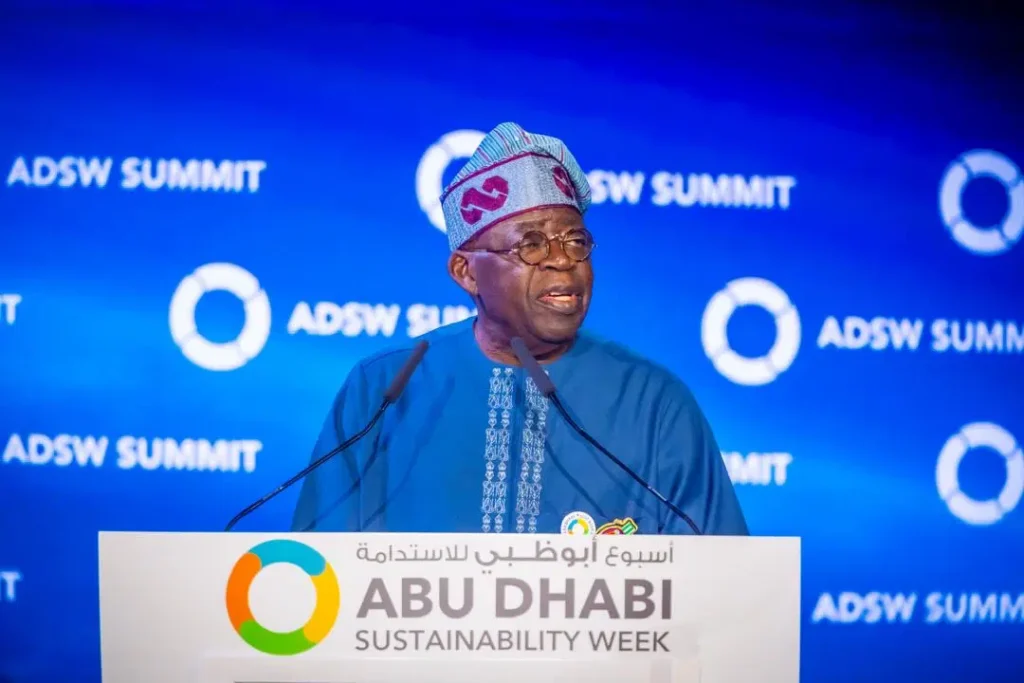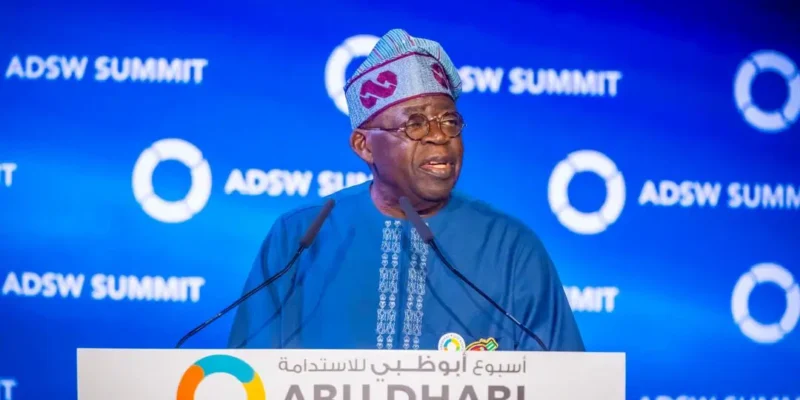
Abu Dhabi, UAE — President Bola Ahmed Tinubu reaffirmed Nigeria’s commitment to sustainable development and global energy transition, addressing an international audience on Wednesday during the 2025 Abu Dhabi Sustainability Week. Speaking on the theme, “From Climate Imperatives into Economic Prosperity: Bridging Africa with the Global Energy Future,” Tinubu emphasized the urgent need for collective global action to combat climate change.
The President declared that the fight against climate change was not just an environmental necessity but a transformative economic opportunity. Stressing the importance of interconnectedness, he said, “The road to sustainability cannot be walked alone. Our shared challenges demand collective action, knowledge sharing, and mutual support.”
Outlining his administration’s strategy, Tinubu highlighted three key pillars: Energy Transition, Climate Resilience, and Sustainable Development. He assured the audience that Nigeria’s policies align with global sustainability aspirations while addressing local realities.
“We are developing infrastructure for Compressed Natural Gas (CNG) and electric vehicles and unlocking the potential of solid minerals to support the green energy transition,” Tinubu explained.
The President detailed Nigeria’s commitment to climate-smart agricultural practices aimed at boosting food security and mitigating environmental damage. He cited the National Clean Cooking Policy as a step towards clean energy adoption, environmental health benefits, and socio-economic development.
Nigeria is also tackling pressing environmental challenges such as deforestation, desertification, coastal erosion, and flooding, with community-driven solutions. “These environmental threats jeopardize millions of livelihoods, and we are working with local communities and global partners to mitigate their impact,” Tinubu said.
Tinubu called on multinational organizations, development partners, and private investors to collaborate with Nigeria in funding green initiatives. Notably, Nigeria is the first African country to fund green projects through Sovereign Green Bonds, with its third issuance underway.
“Our administration remains steadfast in creating an enabling environment for businesses to thrive,” Tinubu assured, inviting global leaders to partner with Nigeria in harnessing technology and innovation to address environmental challenges.
He highlighted Nigeria’s vast potential, including arable land for advanced technological farming and opportunities in artificial intelligence to enhance the nation’s agricultural and energy sectors.
“As leaders, stakeholders, and citizens of our planet, we stand at a critical juncture in human history. To succeed, we must innovate, collaborate, and act decisively as one global community,” Tinubu concluded, urging a unified approach to building a sustainable future.
President Tinubu’s address showcased Nigeria’s readiness to lead Africa’s transition to a green economy, bridging local challenges with global aspirations for a sustainable world.

Comments